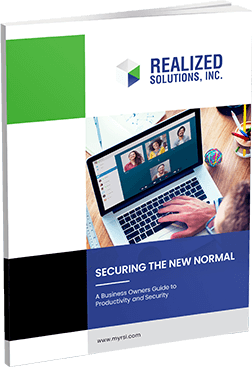Ins and Outs of PCI Compliance
Does your organization handle credit card transactions? Discover how conforming to PCI requirements will help you secure your clients’ sensitive cardholder data.
In today’s highly regulated business world, organizations need to be extra vigilant to ensure they stay compliant with all the relevant standards. One common regulatory standard that applies to virtually all businesses regardless of size or industry is PCI DSS. Basically, if your business processes, stores, or transmits credit card information, you need to comply with the PCI requirements.
What Are Some of the Pitfalls of PCI Non-Compliance?
- Compromised data that could harm your business or clients
- Account data breaches that could, in turn, damage your business relationships and result in lower sales
- A severely injured brand image
- Government fines, lawsuits, payment card issuer fines, or insurance claims
While PCI non-compliance poses a frightening host of risks, it’s never too late to kick start your compliance efforts. In case you aren’t quite up to speed with PCI requirements, this article shares all you need to know. But first, let’s begin by defining some key terms.
What Is PCI Compliance?
The Payment Card Industry Data Security Standards (PCI DSS) are a set of requirements aimed at creating a secure data environment for any organization that processes, stores, or transmits credit card information. It was launched in 2006 following a growing need to manage PCI security standards and strengthen account security across the transaction process.
What Is PCI DSS?
The PCI Security Standards Council (PCI DSS) is an independent body created by Visa, American Express, JCB, Discover, and MasterCard that administers and manages PCI DSS. However, PCI DSS does not enforce compliance. Instead, this responsibility falls on the payment brands and acquirers.
How Can You Become PCI Compliant?
Before your business can be considered PCI compliant, you need to consistently conform to the PCI Security Standards Council’s guidelines (PCI DSS). The PCI Data Security Standards have six major objectives:
- Build and maintain a secure network and systems
- Protect cardholder data
- Maintain a vulnerability management program
- Implement strong access control measures
- Regularly monitor and test networks
- Maintain an information security policy
Besides these six major objectives, PCI compliance also involves 12 key requirements, 78 base requirements, and over 400 test procedures.
What Are the 12 Key PCI Compliance Requirements?
- Use and Maintain Firewalls: Firewalls are an effective primary defense line against any unauthorized access to your private data.
- Proper Password Protection: As a best practice, we suggest keeping a device/password inventory in a secure location and changing your passwords frequently.
- Protect Cardholder Data: Encrypt your business data and conduct frequent scans to ensure no unencrypted data exists.
- Encrypt Transmitted Data: This also applies to data sent to known locations.
- Use and Maintain Antivirus Software: Every device that interacts with primary account numbers (PAN) must have an up-to-date antivirus software version.
- Properly Update Software: Apart from antiviruses, firewalls, and any other piece of software needs to be updated regularly.
- Restrict Data Access: All cardholder data must be assigned a “need-to-know” label.
- Unique IDs for Access: This will enhance security and lower response time if your information becomes compromised.
- Restrict Physical Access: You need to store cardholder data in a safe physical location and log any access.
- Create and Maintain Access Logs: Any activity that involves cardholder data or PAN must be documented.
- Scan and Test for Vulnerabilities: To identify possible weaknesses in your efforts to achieve PCI compliance.
- Document Policies: In a nutshell, you need to keep accurate records of everything, including access logs, equipment, software, authorized employees, etc.
Looking for the Most Reliable PCI Compliance Support in Connecticut?
Our experienced IT professionals at Realized Solutions are eager to help you secure your cardholder data by achieving PCI compliance.
Contact us now to get started.




